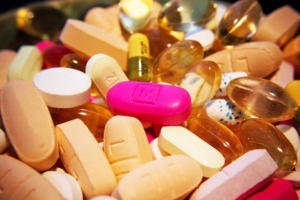Nutritional supplementation in sport plays a fundamental role in maximizing sporting performance, promoting rapid recovery and reducing the risk of injury.
Dr. Andrea Del Seppia, nutritionist at the Ravenna Medical Center, clarifies this. “A basic athlete must follow a balanced and healthy diet” – stated Del Seppia. Sometimes with the mere intake of food, it is not possible to assimilate the nutrient required by the body in the necessary time. The lack of specific nutrients and their administration at the wrong time of physical effort can promote, for example, the onset of cramps, tears, inflammation, reduction in muscle mass and resistance. Supplementation therefore serves to introduce specific nutrients into the body which, for physiological reasons linked to digestion, the food is unable to provide in the required time.
Protein supplements
There are many supplements useful for improving sports performance but be careful to use them at the right time. “Among the main supplements – explains the nutritionist – protein must never be missing, which in an athlete’s diet must be higher in percentage than that of an average-sedentary subject. The proteins must then be grammed by the specialist based on the sporting objective, type of training and also on the weight/power ratio that the athlete must have. Protein balance will be different between an endurance sport, such as cycling, and a power sport such as bodybuilding. Basically, for an average sedentary subject the daily intake of proteins must be around 1 gram per kilo of body weight, while an athlete must take at least 1.4-1.6 grams per kilo of body weight until reaching, in in some cases, even 2 grams”.
Branched or essential amino acids
Another ally for athletes are the branched or essential amino acids which are entrusted with the task of optimizing performance recovery times. “They are the building blocks that we are going to obtain from proteins – continues Del Seppia. They have an important role in recovery, thanks to faster protein assimilation and must be taken within thirty minutes after physical exercise. In particular, the most important amino acid is leucine, which must be in a higher percentage than the other amino acids.
Creatine
A very important supplement is creatine which is often not taken appropriately. “Thanks to its ability to bind to sugars and water, it plays a fundamental role in muscle volumization and energy recovery. For recovery – assures the nutritionist – the recommended weight of creatine is 4 grams to be taken within 30 minutes after physical exercise, possibly diluting it in a sweet drink such as fruit juice, because creatine is conveyed much better if accompanied by simple sugars ”.
Maltodextrin-based supplements
In endurance sports such as cycling, swimming or running with performances lasting more than an hour, it is important to take maltodextrin-based supplements every 45-60 minutes, which will allow you to cover the energy expenditure of all physical activity during its performance. Metaphorically, the human body can be compared to a car that needs to fill up with petrol these days. Commercially, these supplements, to be taken during exercise, are found in the form of an energy bar, disposable gel or powder to be dissolved in water to sip. At a dietary level, if before training it is advisable to eat carbohydrates with a low glycemic index which release energy gradually into the blood, in the post-workout period where there is a need for rapid recovery, simple sugars with a higher glycemic index are indicated which will enter quickly in the blood.
Hydration
Pay attention, then, to hydration: “You need to drink every approximately 20 minutes of training – concludes the doctor – because when the muscle becomes dehydrated or runs out of glycogen supplies, muscle cramps can arise. With the arrival of the heat, it is advisable to add mineral salts to the water to make hydration more efficient.”
